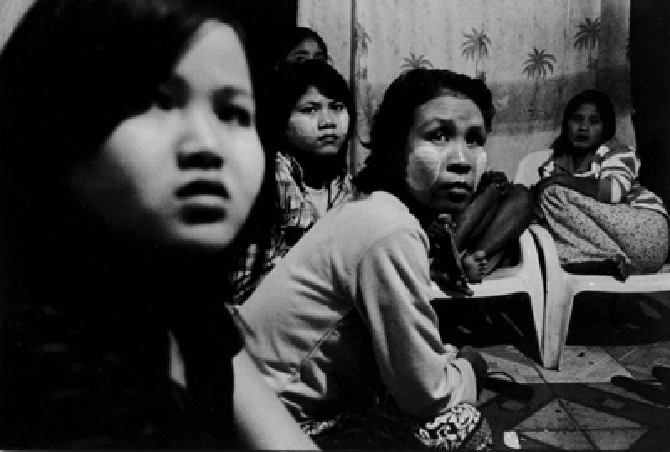BANGKOK—Unscrupulous traffickers, Burma's economic decline and militarization, and a shortage of females caused by China's “One Child Policy” have all combined to contribute to the trafficking of women from the Palaung region of Burma into China, says a locally based activist group.
“Since 2007, we have documented 72 cases of actual and suspected trafficking involving 110 people,” said Lway Moe Kam of the Palaung Women's Organisation (PWO). The caseload includes 11 children under 10 years of age.
Twenty-five percent of the women trafficked were forced to marry Chinese men and 10 percent of the caseload were coerced into the sex trade, according to the PWO, which grimly concluded that nine out of 10 trafficking victims do not escape.
According to a particularly gruesome account given by one victim of trafficking, she was taken to a building in Shandong, eastern China, where people were kept as live feed for leeches, used in Chinese medicine. “I saw some people in that room lying in pools of water. They were all fat, but looked lifeless and were not moving. Then I saw that there were leeches sucking those people's blood,” said the unnamed woman.
The PWO concedes that the number of trafficking victims is likely to be higher than reported, with real figures difficult to determine due to local cultural constraints, further hampered by the logistical and security challenges confronting researchers working in the area. In 60 percent of the cases analysed, it remained unclear exactly what kind of situation the victim was trafficked into.
“Traffickers work in secret, and the presence of the army means that we have to be careful when doing research and talking to people,” said Lway Aye Nang, another PWO representative.
Palaung culture frowns upon extramarital sex, meaning that trafficked women who suffer sexual crimes “are often reluctant to admit they have been trafficked,” said Lway Moe Kah, the lead author of the PWO report, “Stolen Lives—Human Trafficking from Palaung Areas of Burma into China.”
In perhaps a surprising finding, 65 percent of the trafficking perpetrators were female, a factor that Lway Moe Kam puts down to the greater trust placed in women by the eventual victim of trafficking. "It sounds better if the job offer is made by a woman," she said, though Khin Ohmar, a Burmese exile activist based in Chiang Mai, cautioned that the female perpetrators might themselves be coerced into recruitment by other traffickers, likely male, who dominate the trade.
The investigation focused on the townships of Namkahn, Namhsan and Mantong in the Palaung region of Shan State, which sits on the Burma-China frontier. In the absence of recent census date, the Palaung are thought to number around one million people, mostly mountain-dwellers in an area laden with gold, silver, zinc and aluminum.
China's one Child Policy has contributed to a relative scarcity of women in the country, with the Chinese Academy of Social Sciences recently predicting that 24 million Chinese men of marrying age could be unable to find a wife by 2020. While the laws are not as aggressively imposed in rural areas close to Burma as they are in China's eastern seaboard cities, they contribute to a growing gender imbalance, with sex selection abortions “extremely common,” according to the Academy.
With families restricted by law to one, or perhaps two children, a cultural preference for male offspring has been exacerbated, said the Chinese researchers, resulting in 119 boys born for every 100 girls, a disparity that rises to 130-100 in some rural areas.
According to US government in its 2010 report on global human trafficking trends, Burma's government has been working to combat some aspects of trafficking, such as the international sex trade. Burma prohibits sex and labor trafficking through its 2005 Anti-Trafficking in Persons Law, in which traffickers are classed in the same category as rapists.

